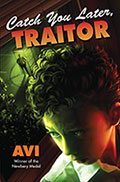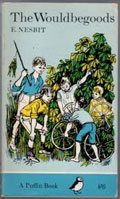 Every parent, teacher, and librarian wants children to read. The reasons they wish for this are endlessly varied, ranging from educational skills, entertainment, to learning a lesson. Sometimes, however, we need ask, what is it about reading that children like?
Every parent, teacher, and librarian wants children to read. The reasons they wish for this are endlessly varied, ranging from educational skills, entertainment, to learning a lesson. Sometimes, however, we need ask, what is it about reading that children like?
I’ve come to believe the answer lies in the different way kids and adults read books. When adults read a book, they encounter a situation, a character, a detail, which enables them to say, “That’s something I have experienced.” Or, “How interesting. I have seen that happen.” “Oh, I’ve done that.” And so forth. That’s to say, they see the fiction as a confirmation of their own lives, something they recognize as true.
When young people read fiction, they absorb the depicted experience as if it were about them. Just the other day I asked a seventh grader why she liked fantasy so much. “Because I’m always in the clouds, dreaming,” she said. “Those books are what I want to do.”
In other words, young people engage with reading best when they can put themselves into a book. The experience related in a story becomes their experience. Yes, literary quality can enhance that experience, but it’s mostly what happens in a story that engages kids.
When one writes for young people, you have to find a way to allow your reader to connect to your story in this very personal way. The young reader must recognize himself/herself in the tale. The story must — ultimately — be about them, their world, even if they cannot articulate that fact. Indeed, sometimes what engages the young reader is that they want the experience depicted in the story.
 Years ago, for bedtime, I was reading E. Nesbit’s, The Would-Be-Goods (1899), a charming British Edwardian novel, to my six-year-old boy. As far as I could tell, there was absolutely nothing in the book which was similar to his life. All the same, he was enjoying it immensely.
Years ago, for bedtime, I was reading E. Nesbit’s, The Would-Be-Goods (1899), a charming British Edwardian novel, to my six-year-old boy. As far as I could tell, there was absolutely nothing in the book which was similar to his life. All the same, he was enjoying it immensely.
One night — having learned that kids wrote to authors, he said, “Can I write to the author (Nesbit) and tell her how much I love this book?”
Me: “That would be nice, but I’m afraid she died many years ago.”
My boy sat bolt upright in bed. “That’s impossible!” he cried.
“Why?”
“Because she knows so much about me!”
It was a great book — for him — because it was, in some way, about him.
I did not know that. I doubt if he could have explained it to me. I rather suspect he identified with the characters in the book because they constantly got into some kind of mischief. It’s the kind of life he would have liked to have lived.
That’s why it’s so important to allow kids to choose the books they wish to read. Something about the title, the image on the book, the opening paragraph, something, has caught the attention of the young reader. They wish to connect to that. We need to honor that.

I I have always believed that we need to provide young readers with stories they can live vicariously through – will an inner city kid ever get to experience life on a ranch, in another country, or even a day at the beach. A book can take that reader there!